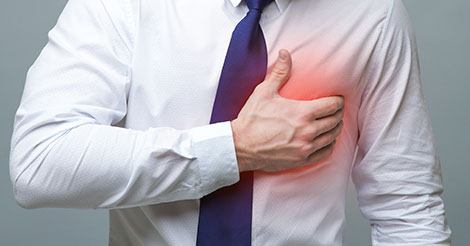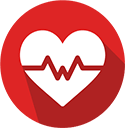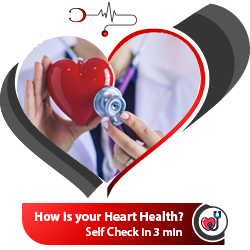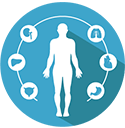Heart Disease - Sign & Symptoms
Heart disease is not a single disease but a collection or a group of conditions in which blood vessels supplying blood to the heart gets damaged or the heart is not able to function normally.

Below are some common signs and symptoms of cardiac diseases.
-
Shortness of Breath
Breathlessness or shortness of breath is commonly seen in patients with heart disease. Difficulty in breathing on physical exertion may indicate a problem in the heart valves or could be due to inflammation and weakening of the heart muscle.
-
Chest Pain
Chest pain or angina is a classic symptom of heart attack and coronary artery disease. The type and duration of chest pain indicate the underlying heart disease. Pain could be short-term, constant, stabbing, or sharp in nature. It lasts for a few seconds to hours.
-
Swelling in Feet
People with congestive heart failure develop swelling in the feet and ankles due to a reduction in the blood-pumping capacity of the heart. This eventually affects the kidneys which respond by retaining more fluid in the body. The fluid starts to accumulate in the feet and other parts of the body.
-
Cold Sweat
A person who is likely to get a heart attack may start sweating profusely without any apparent physical exertion. Heart failure results in overstimulation of the sympathetic nervous system which leads to sweating.
-
Tiredness or Fatigue
Symptoms of heart disease may vary in men & women. In women common symptoms of heart failure/heart attack is unexplained overall tiredness and fatigue. Fatigue is also common in older people with diabetes who also suffer from heart disease.
-
Irregular pulse rate/palpitations
A rapid pulse rate or strong heartbeat is a usual complaint made by people visiting a cardiologist. Palpitations could indicate a heart problem when associated with shortness of breath, weakness sweating, and other symptoms.
-
Pain in the hands
Some people may experience intermittent or constant pain in the shoulder that radiates to the entire left arm and even the back.
Also Read: Heart Disease - Overview












